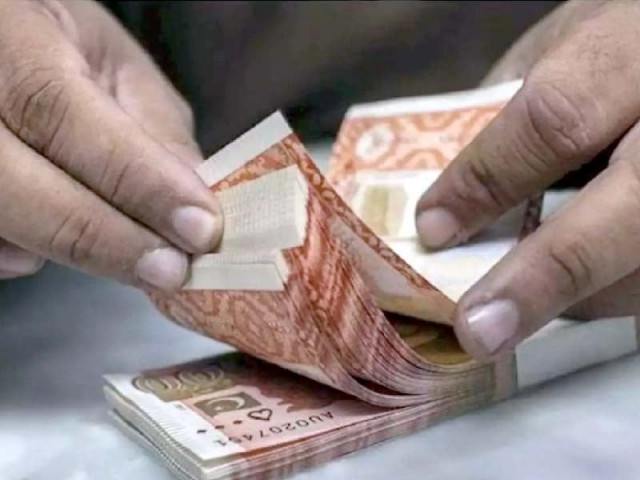SBP injects Rs1.8tr into banks
Conducts OMO to ensure ample liquidity remains in banking system

Pakistan’s central bank has injected Rs1.8 trillion into commercial banks for a short period of seven days to ensure ample liquidity remains in the system.
The State Bank of Pakistan (SBP) made the financing available at a stable interest rate of 17.25%. It was almost three percentage points lower than 20% at which commercial banks extended financing to the cash-strapped government on Wednesday (Feb 22).
The 3% spread allowed commercial banks to make easy money compared to the usual spread of around 1%. This is why many banks have reported record high profits in the current testing times when a large number of businesses are lying closed partially or completely and millions of workers have lost jobs.
Background conversations with financial experts suggest that commercial banks have charged a significantly higher interest rate of 20% on financing to the government, as they ignored the monetary policy, where the benchmark policy rate stands at 17%, meaning they could charge around 18%.
They, however, charged 20% on expectations the central bank would increase the key policy rate by 100-200 basis points soon on recommendations of the International Monetary Fund (IMF).
The central bank, however, strictly ran by the book. It followed the monetary policy and avoided charging a higher rate on financing to commercial banks. It could charge as high as its prevailing discount rate of 18%.
It, however, injected the financing at a stable rate of 17.25% compared to the previous injections where were made at 17.04% about a week ago.
Talking to The Express Tribune, Arif Habib Limited Economist Sana Tawfik said the central bank’s stable interest rate of 17.25% suggested “it is apparently in no mood to jack up the policy rate aggressively by 200-300 basis points in one go in the forthcoming meeting scheduled for mid-March”.
“Instead of in one go, it may consider hiking the rate in parts…by 100 basis points in March meeting and by another 100 basis points in the next meeting scheduled for April,” she said.
“SBP’s stable rate at 17.25% is no signal to the financial market that it will maintain the key policy rate at the current 17%.”
Earlier, the IMF recommended the SBP to increase its policy rate by 200-300 basis points.
The central bank injected Rs1.8 trillion into commercial banks through seven-day open market operation (OMO) on Friday to ensure ample liquidity remained in the system, as banks were due to return a maturing loan (OMO) amounting to Rs1.9 trillion to the central bank the same day (Friday).
The SBP is anticipated to conduct another seven-day OMO next week, with a larger amount of over Rs2 trillion when banks are due to return another maturing loan of Rs2.5 trillion.
Moreover, the government is scheduled to raise Rs1.8 trillion from commercial banks in mid-March.
She elaborated that the OMO was a tool available with the central bank to maintain enough liquidity in the system. “It conducts OMO of a minimum one day to a maximum 77 days, considering the demand in the system.”
She said the government had continued to borrow expensive money from commercial banks, as it has no other option because its needs stand high for bridging fiscal deficit. The government’s reliance on domestic borrowing will fall once foreign financing resumes.
JS Global Research reported earlier this week that commercial bank lending to the government jumped 12.5 percentage points in one year to 85% of the total deposits in January 2023. “(The) investment-to-deposit ratio (IDR) reaches the high of 85%.”
“Pakistan’s top five private sector banks’ profit grew 18% (Rs26 billion) in 2022 to reach Rs166 billion (compared to 2021),” tweeted Topline Securities CEO Mohammad Sohail.
“However, their tax almost doubled in 2022 to Rs194 billion. The effective tax rate at 54% in Pakistan is one of the highest,” he added.
Published in The Express Tribune, February 25th, 2023.
Like Business on Facebook, follow @TribuneBiz on Twitter to stay informed and join in the conversation.



















COMMENTS
Comments are moderated and generally will be posted if they are on-topic and not abusive.
For more information, please see our Comments FAQ